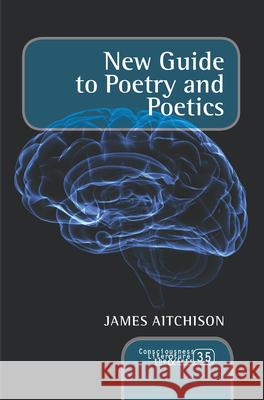New Guide to Poetry and Poetics » książka
New Guide to Poetry and Poetics
ISBN-13: 9789042037632 / Angielski / Miękka / 2013 / 312 str.
New Guide to Poetry and Poetics opens with analyses of the elemental forces of creativity: the creative impulse, the creative imagination and the sacred impulse. The book then describes in detail how a poet's voice and vision are formed and sometimes reformed in the course of a career, and it establishes the real nature of rhythm and music in poetry. Problematic areas - inspiration, meaning, reality, myth and mystery in poetry - are fully explored in discourses that identify the true properties of poetry, dispel several misconceptions and expose inadequacies in current literary theory. The author examines concepts of poetry from Plato to the twenty-first century. The book includes detailed studies of the principles of poetry expressed by Wordsworth, Coleridge, Shelley and Keats at the beginning of the nineteenth century, and of the widely contrasting principles of Arnold and Emerson in the second half of that century. There are radical re-assessments of the concepts - in effect, the philosophies - of major poet-critics of the twentieth century: W. B. Yeats, T. S. Eliot, Ezra Pound, W. H. Auden, Wallace Stevens, William Carlos Williams and Stephen Spender. The poetic principles of Seamus Heaney and Robert Nye form a bridge from the last century to the present. By focusing on the creative process and applying the findings of linguistics and neuroscience, the book shows ways in which the poet's mind functions in the making of poems. On questions of brain and mind the book considers the findings, and the conjectures, of Daniel Dennett, Antonio Damasio, Oliver Sacks, Michael Persinger and the remarkably durable work of William James. On questions of language it considers the works of Ludwig Wittgenstein and recent work by Noam Chomsky, David Crystal and Steven Pinker; the author also draws on his own knowledge of the properties of language.











